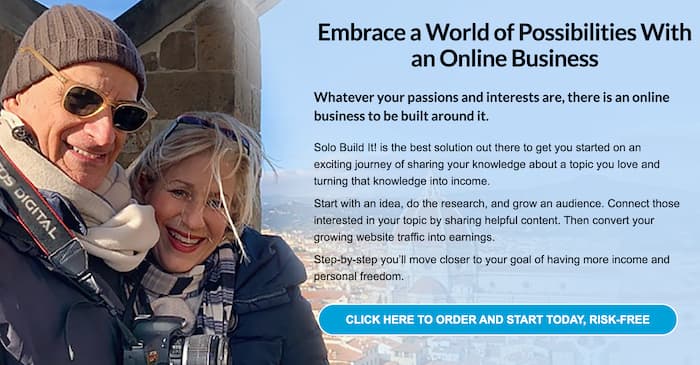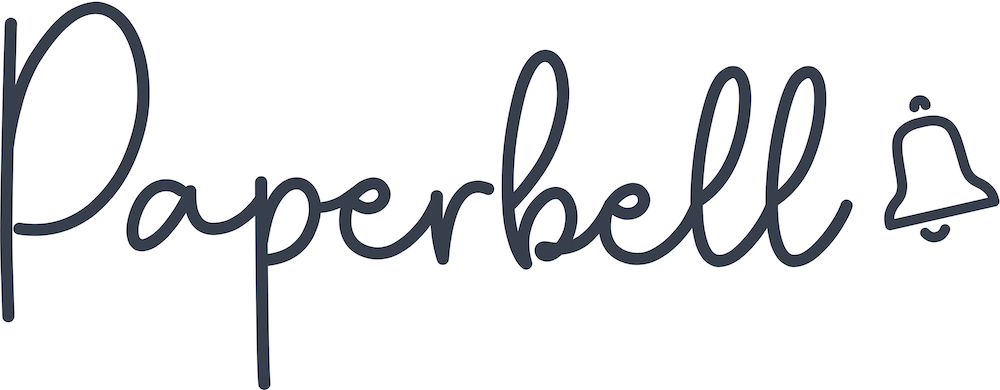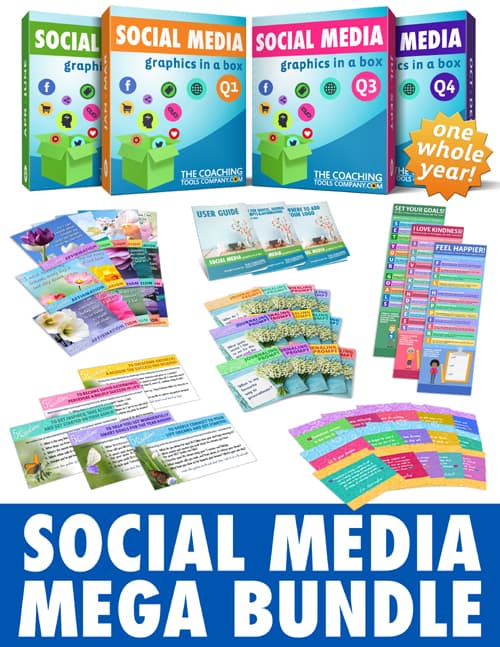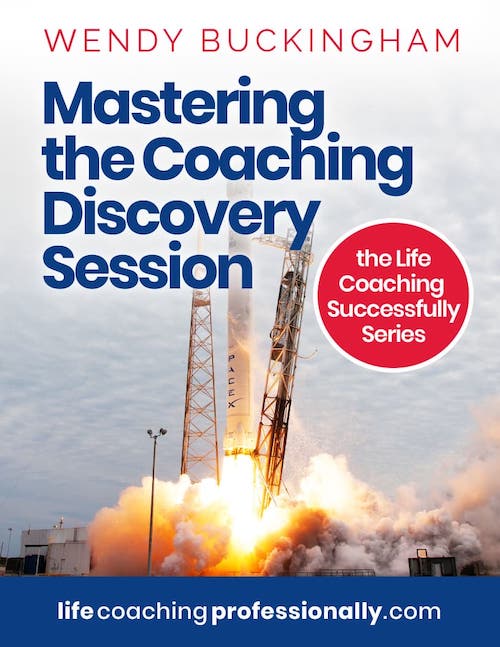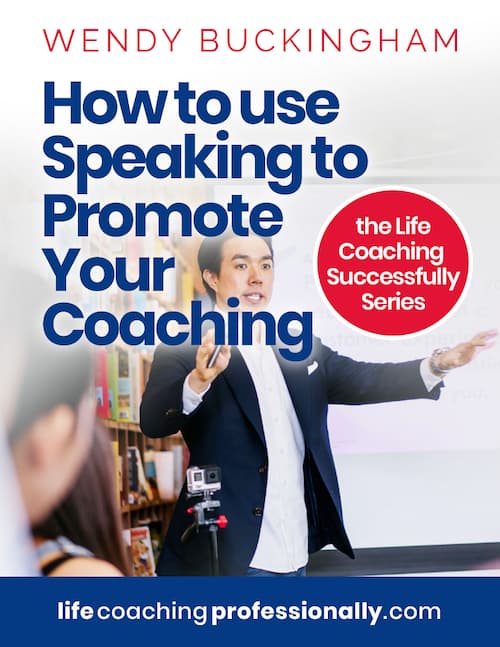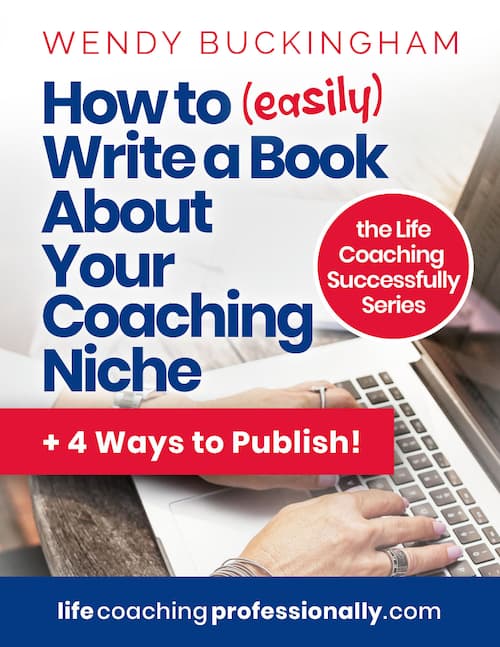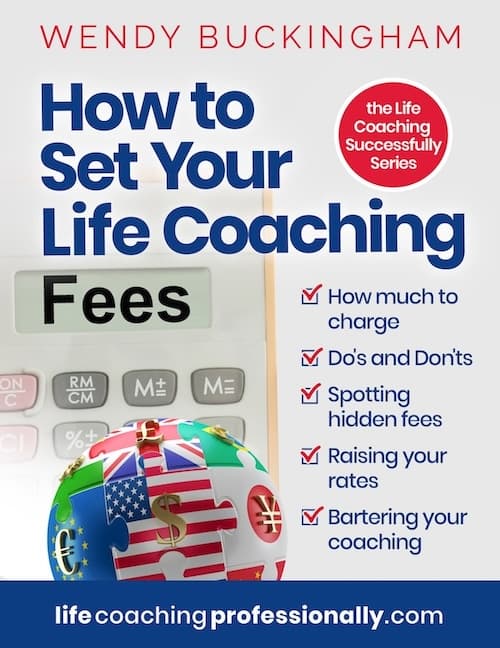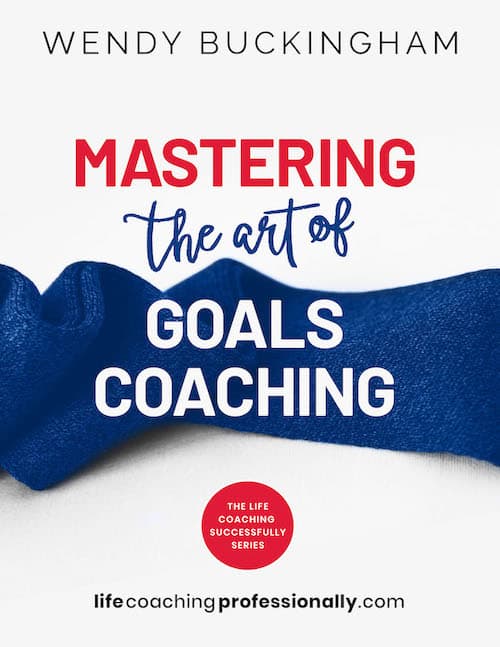- Life Coaching
- Marketing
- Coaching Websites
A Guide To Building The Best Life Coach Website
If you want to use your life coaching website as a productive marketing and business building tool, this guide will help you not only make sure it is easily found, but will also engage your visitor (potential client) to stay, explore and then feel confident in taking the next step to approach you to be their coach.
Quick Links
I may receive commissions at no cost to you. I participate in the Amazon Services LLC Associates Program. More...
Three Types Of Websites For Life Coaches
1. The brochure style life coaching website
This may simply be a single page or a few pages with your picture, your contact details and a little about you and the services you offer as a coach.
With products like Wordpress, Squarespace, Wix, Weebly, GoDaddy and so on you can quickly create a site like this yourself either for free or pretty cheaply. However unless you refer your prospects to this site or have paid advertising, it will rarely be found by the search engines and seen by potential new clients. To do this a website invariably needs a lot more content and function and the purchase of plugins beyond the the basic free offer.
However, if you already have or are just starting to create your life coaching website and decided to use Wordpress, I really recommend you check out Solo Build It for Wordpress.
It's an excellent plug in with lots of hassle free help in building your coaching business through your website and a detailed action plan for actually getting found by the search engines.
2. The Content Rich Life Coaching Website
This website is one that has lots of information related to you and your coaching speciality. It takes more work and is usually developed over time. Wendy started Life Coaching Professionally as a coaching information site in 2010 with just a few basic pages and it now has over a 100. You, as a coach, may only need to have 10 or 20 to be effective.
Informative and engaging content about you and your coaching will attract the search engines, so you can get found by prospective new clients.
In our experience, it is most important to check that the right technical guidance and business education is available from your chosen web platform before you commit.
This was missing from many of the web platforms Wendy and I researched back in 2010 but we found the technical guidance, action guide and support we needed from Solo Build It. This support information can be vital in bringing free (organic) traffic and enquiries to your site and, if you want, income from affiliate platforms, such as Amazon .
So, do get clear, and maybe list, what functions you need from a web platform and check out what technical and online business building support is provided by a any platform you are considering.
3. Blogs
Content or information sites are often confused with a blog or Facebook page which is the third option. However, they are very different.
Think of these blogs as online publications. They are a continually updated source of information, entertainment and fresh content to read.
Many coaches use a blog or business Facebook page to promote themselves. However, in our experience a proper, website with lots of easily found information is a better, more stable, long lasting and professional option.
While Blogs, Facebook, Pinterest and Instagram are all useful, they require constant feeding with new content. The content of a well structured site is permanent and needs only checking and updating.
Having said that, a blog, landing page or Facebook page can effectively be used to lead people to visit your website for more information about you and your coaching.
The question is, which type of website will work best for you and how can you make sure it will be found by the search engines and therefore prospective clients?
10 Keys To Life Coaching Website Success
Wendy and I spend a lot of time visiting coaching websites. These 10 tips are based on what we have found engages us to stay and explore or annoys us so we are tempted to quickly move on.
1. Make sure all your links work
If a link on a site we are visiting doesn’t work and we feel inclined, we email the owner of the site and let them know “link not working”. However, not many people do that!
Regularly check that all your links to other pages and downloads are working. That also goes for links in your emails and newsletters. There are automatic programs that will check for you and notify you of a broken links on your own website such as BrokenLinkChecker which is free and reliable.
2. Pop-up box etiquette
There are well over 200 ranking factors that Google and the other search engines use to evaluate your site in the Search Engine Results (SER) and Pop-up-boxes, that invite people to book a session or subscribe are one of them. Pop-up boxes that cover the text on a mobile device are a real no-no with search engines because they prevent visitors from reading the page.
So if you have one, try having it placed it so it doesn't interfere with the normal reading process. Also avoid having it pop up the moment a page loads on the screen so the visitor has a chance to see what the page is about and get interested before they are urged to sign up for something.
3. Be wary of home page slideshows
Putting moving pictures on the header of your website whether they be graphics to create the ambiance of your coaching or testimonials seems to be a passion of many web designers wanting a site to look clever and attractive.
Unfortunately many web designers don't realise that these slideshows are also a very inefficient use of site space. They slow down the page load time (which is important for rankings) and actually have a very poor click through rate.
We find moving graphics distracting from the information we are trying to find on any site. It can also be annoying if we are trying to read a testimonial or description of service and the screen moves on to the next one before there is time read it. It is much better to incorporate testimonials in relevant page content or have separate pages for testimonials and your services.
4. Make it easy for visitors to get in contact with you
We'd never advise putting your phone number or email directly on your website. It's too easy for it to be scanned and sold to people who will scam and pest call you.
An easy to locate and simple to fill in "contact me" form is the way to go. Not being able to easily find how to contact you, is a sure-fire way to lose visitors and potential clients.
Ask for just enough information to enable you to get back to them by phone or email. We'd advise making their phone number an option rather than a requirement as it can be a barrier to their contacting you for fear of unwanted phone follow-up.
You could even include an optional box for them to tick if they want to be on your mailing list. Then they don't feel they may be "captured" for future communications from you.
5. Show your visitors you are a real person as well as a life coach
No matter how good looking and easy to navigate your site is, if the visitor does not relate to you as a friendly and credible person, they will be gone in a flash.
Potential clients want to know who you are apart from your coaching qualifications. On your "About" page it is important to have some friendly and engaging information about the you and your history that gives identity and personality. But make it relevant and avoid a long and rambling life story.
Some of this information should also be briefly included in your home page so visitors feel they are getting to know you as a person as well as a life coach straight away.
Another thing to avoid is referring to yourself in the third person in an effort to look more substantial when your coaching practice it is just you. It doesn't work!
6. Focus on how you help your clients
Whilst it is fun to write about the techniques, approaches and modalities of coaching, your soon-to-be clients want to know HOW your coaching will actually help THEM and be worth their financial investment.
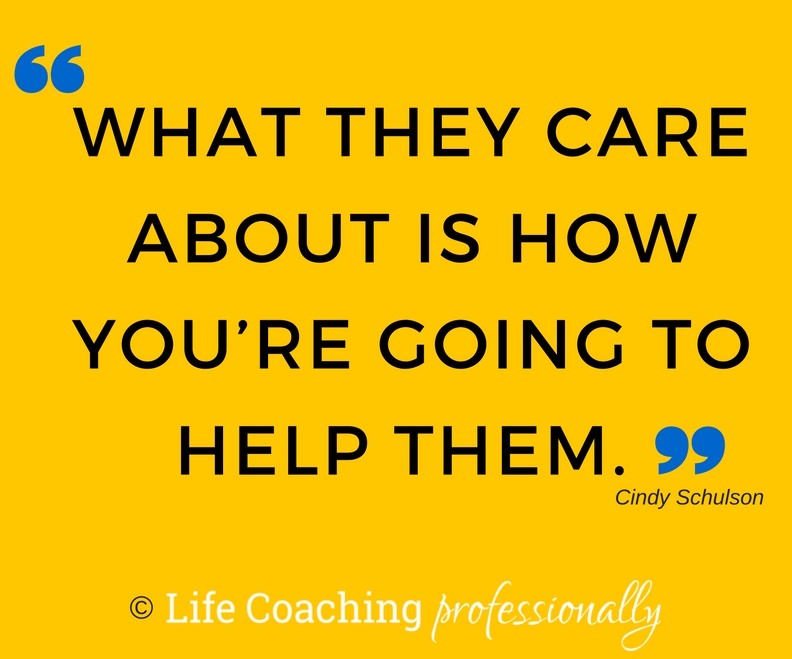
So, focus on benefits of your services to your clients. Talk about the challenges that you'll help them overcome whether it be lack of confidence, career help, business growth and so on, or a specific niche .
While you can't promise your website visitor that their dreams and goals will be achieved with your coaching, you can point to case studies and testimonials which you publish on your website. You can share case studies without permission if you change names. Here's how to easily get testimonials even if you are reluctant to ask for them.
7. Hassle-free email unsubscribe function
This relates to any email subscription series more than a website but it is a "Must Do". A clumsy or dysfunctional unsubscribe function can be really frustrating and can lose you a lot of goodwill. Especially annoying are those unsubscribe systems that require you to go to a website and send an email.
Make the unsubscribe function for your newsletter a simple one-step click process and check regularly that it is working.
8. Do you need a "privacy" and "affiliate" page?
If you are collecting any data such as email enquiries, a newsletter subscription, or selling a product or service through an affiliate, by law, you need pages on your website about privacy and affiliates. You'll see I have an affiliate disclosure underneath the Quicklinks at the top of this page and you'll find my privacy policy here.
9. Is your website responsive and mobile friendly?
Chances are that you use a mobile phone, tablet or iPad instead of, or as well as, a desktop or laptop. So your site needs to be mobile ready.
Remember that, even though your life coaching website site may be technically OK, it also needs to be easy to read and navigate on all devices. Look at each page on your mobile to make sure it is easily found, readable and mobile friendly and has not morphed into a mess that will put off prospective clients.
10. Is your site security up to date?
Assuming you are using a reputable host, any new site will be naturally secure and meet current web security standards. However, if you have a site that is more than about 6 years old, you may need to update its security to Google's latest requirements.
Most older website addresses begin with HTTP://. When you visit one of the sites there may even be a warning display that asks you if you are willing to continue. Don't let this be your website! You will know a site is up to date and secure because it displays a lock in the address bar and the address starts with HTTPS://… like this image shows...

Three Common Website Building Traps
Let's discuss how fancy promises, incorrect or misleading information and confusing legalities can prevent you from choosing the best website platform for your life coaching website.
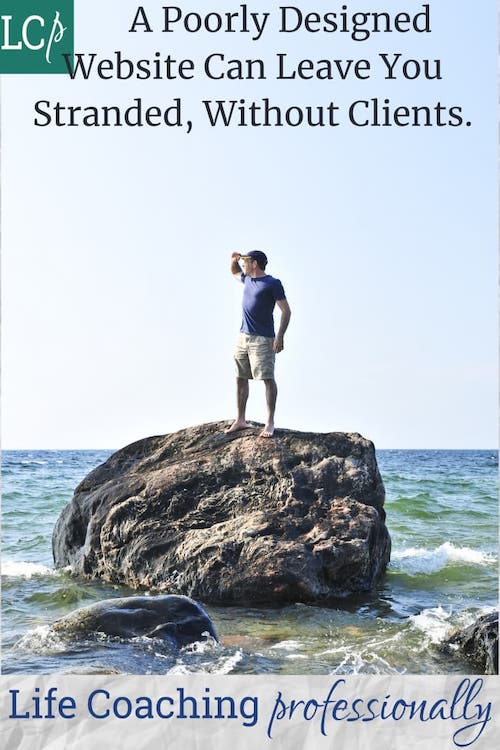
1. The Hyped Up Marketing That Doesn't Deliver
Unfortunately, when you are creating your first website, it’s very easy to be caught out by persuasive and hyped-up marketing. Many high profile web building platforms promise “websites in 15 minutes” or with minimal effort but the truth is that in most cases the advertising is either misleading or not telling you the whole story.
This can lead to disappointment, frustration and expensive mistakes.
You may discover "free" does not get all the functions you need and you are up for a lot more work and expense in extra plug-ins than you thought in order to create a website that really "works" for you in attracting clients.
So before you start your search for a website platform, make a list of the functions you need now and may need at any time in the future. Examples include an emailing list function; how easy it is to transfer to another platform; what fuctions are included in the "free" pack, whether in personal technical guidance is available if you get stuck, and so on.
2. Believing Google will do it all...
Some webmasters and designers who claim to "know about marketing" and SEO will mistakenly lead you to believe that just building a site with few pages and lots of relevant key words is sufficient. They will tell you that Google will do automatically do the rest with it's search engines so that clients will find you.
Simply creating things like a splash page or a pretty site with good keywords and testimonials will not find new clients. These days to get continually found by the search engines, you need a site not only with good keywords but with substantial, original content and a function for regular updates.
Having said that Google offers many free processes to help you keep track of how your site is doing and where things may need attention such as updating keywords.
3. The hidden legality traps
More and more, there are legal considerations that many webmasters have no idea about but, you as the website owner, (not your host or your platform) are responsible for.
For example, do you know that there is a European law called General Data Protection Regulation (GDPR) that requires you to do age and privacy checks for any email addresses you collect? And requires you to have up to date privacy pages? These can vary from place to place so it's so important to check out regulation in your country or state.
The Power Of Organic (SEO) Free Traffic To Attract New Clients
So, what is Search Engine Optimisation (SEO)?
It's important to understand that every time you use a search engine to find information you are conducting an organic search. You are looking for information about a subject.
Search Engine Optimisation (SEO) is the process of creating content and information on your life coaching website that is focussed on the information your target visitor would be searching for. The more relevant information you have, the more the search engines take notice and deliver your pages in the search engine results.
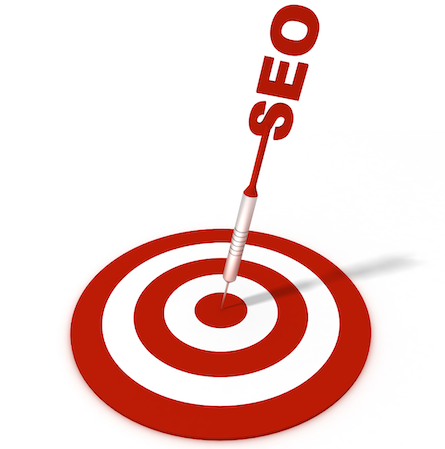
Many believe that you just add a few relevant keywords to a page for it to be found by the search engines. Wrong wrong! Your content must have what your target visitors want to find and what the search engines need to give you a good ranking.
For example, if you have come to this page from a search on Google, Bing or one of the other search engines, you found it because of the organic search rules of focussed content that ranked the page high up the search results page.
When content is written with this focus, Search Engines have a better chance of understanding what your on-page content and the site are all about. This means that if someone is searching for a particular thing (for example your life coaching niche or specialty) and you have an excellent page about it and the Search Engines recognise it, you have a better chance of being found.
Achieving SEO is not an instant process and may take some experimentation, but once it is established, your pages will be easily found because your content is high quality and relevant to what the person searching is looking for, as well as containing necessary keywords.
Ideally, you aim for your website to pop up on the first page of the search engine, or at least high up after the sponsored sites. The higher the better! After all, when was the last time you did a search and got as far as looking at page two or three of the search results!?
Effectively Using AI To Help Create Your Content
AI platforms such as ChatGPT or Claude can be appealing and very useful as a time saving way of creating content, especially if writing is something you find challenging.

However be warned! Google and the other search engines are now clever enough to recognise totally AI created content and may downgrade such a page in the search rankings.
To avoid this you need to edit what AI comes up with to reflect your own voice, your stories, pictures and some of your own original material.
AI is really useful for giving you prompts and ideas about content and headings and but should not be used entirely as a substitute for personally created material.
Solo Build It! subscribers have access to their fabulous new tool TAI on effectively using AI to create and enhance your website content. You can read how it works and actually use the free trial offered on TAI here without being a subsciber.
Some Useful Resources for Creating Life Coaching Websites
The Coaching Website Guide by Kenn Schroder
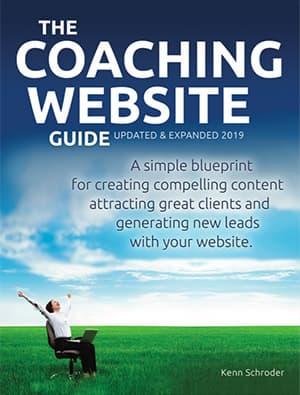
If you are planning to create a life coaching website, or if you already have one that is not delivering results I suggest you consider in investing in The book "The Coaching Website Guide" is by Kenn Schroder who specialises in creating websites for life coaches of all specialties.
Reading this book, I was really impressed by the way he has covered creating a coaching website that will engage and attract clients from content to navigation and SEO in an easy to understand writing style.
The book is in PDF form and has links to the various chapters so it is easy to dip in and out of and find whatever website related content you are looking for.
At $129, The Coaching Website Guide seems like a big investment but in reality, it will save you a vast amount of time and could save you a fortune in time and costly website mistakes. Check it out - you can review the first chapter for free!
Solo Build It! For Wordpress ..
As already mentioned, If you are a fan of Wordpress and love that platform, there is also a plugin with the complete education program, user friendly forum and Keyword finding tools.
It works perfectly with Yoast.
Paperbell life coaching software
A life coaching software system I checked is Paperbell which, in addition to many coaching admin needs, offers a website building function with some sound advice. Paperbell also has the the bonus of being a partner of the ICF (International Coach Federation).
Paperbell offers a month’s free trial - without the hassle of giving a credit card. So take advantage of this freedom to explore Paperbell and to see if what it provides is a good fit both your coaching AND website needs.
Included in the free trial really great guidance on using their system during and ongoing support to grow your coaching business. There is nothing to lose by taking a thorough look! 👀
A Fantastic Tool To Reduce Any Social Media Stress
Do want to use platforms such as Pinterest, Instagram etc. in conjunction with your coaching website but can't afford the support (or the time for creating and updating posts) This 365 day Social Media Mega Bundle from the Coaching Tools Company will provide you with everything you need, all year round.
With 107 professional looking brandable tools to use in different quarters of the year it will help you connect with your fans and gain followers - as well as saving time and money
The kit of infographics 365 includes Coaching Questions, Inspirational Quotes, Journal Prompts and more with a user guide to get you going. You can review the full list of tools here.
I sincerely hope the information on this page and the related page on 14 Common Website Mistakes, will help you navigate creating a life coaching website that really does it's job for you by attracting quality coaching clients.
Extra help to grow your coaching skills and promote yourself
I have written a wide range of practical and down to earth informative eBbooks from my own 25+ years coaching experience. They can help you to authentically attract new quality clients, increase your coaching skills and promote your coaching services. Do check them out.
